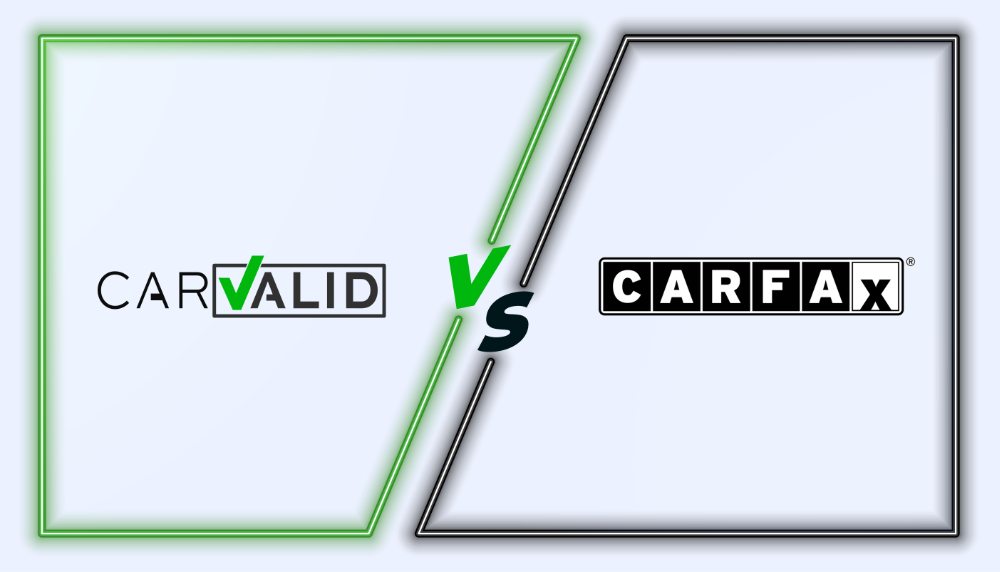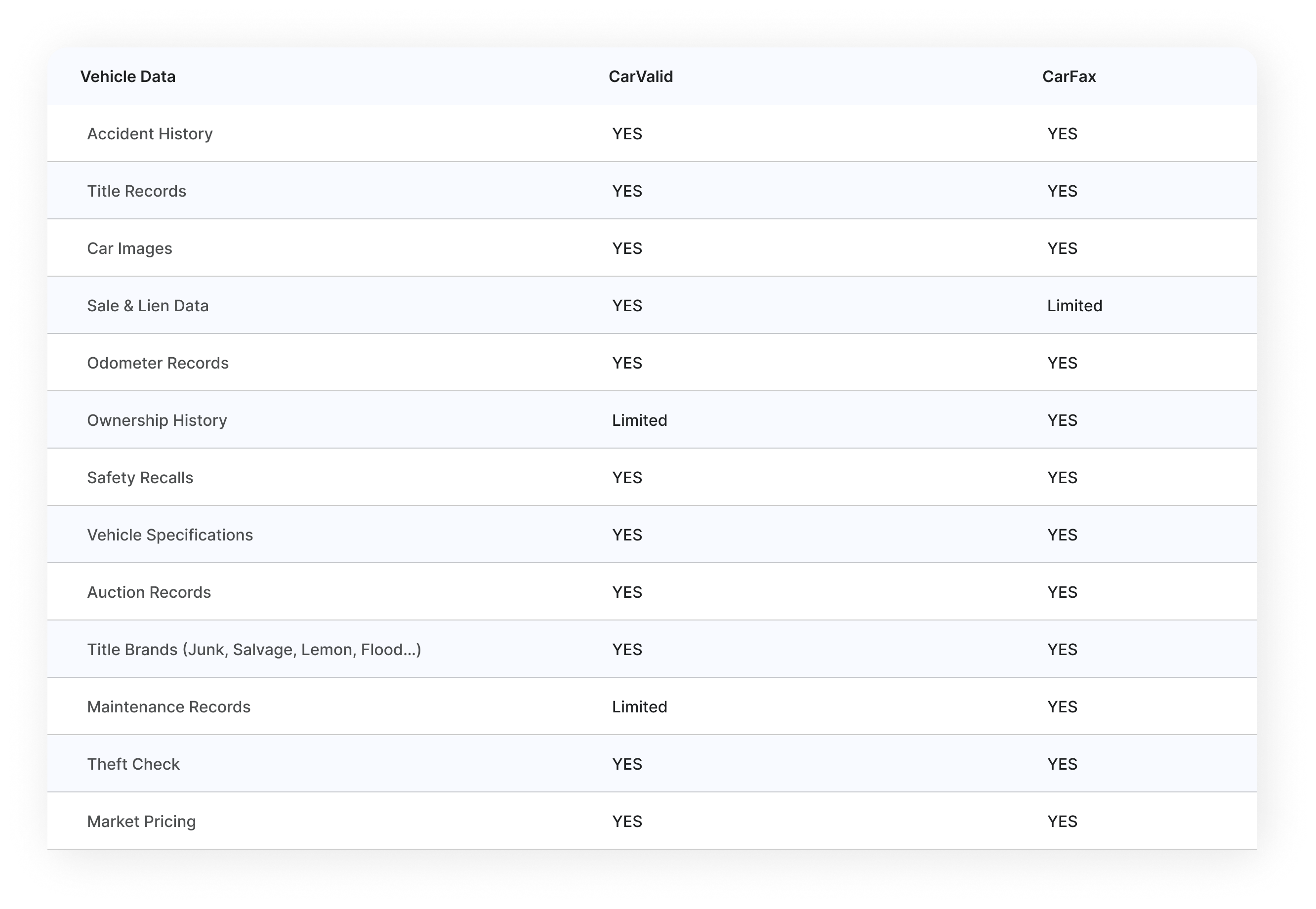CarValid vs Carfax: Key Differences in Vehicle History Reports
Justin S
Created by: Sep 05, 2025
|
Modified by: Nov 07, 2025

Why a Vehicle History Report is a must for used car shoppers
Purchasing a used car can be a smart financial decision, but it also comes with risks that may not always be so obvious at first glance. Beneath the shiny paint job, the car can be hiding some hidden problems. These hidden issues, such as past accidents, flood damage, mechanical issues or odometer rollbacks, could leave you with costly repairs and safety concerns down the road. This is why running a vehicle history check before you commit to purchase is one of the most important steps in the used car buying process.
According to CARFAX, nearly 40% of vehicles on the used market have a title issue or hidden damage in their past. A full vehicle history report can reveal details that the seller may not want you to know. It can uncover if the car was ever written off as a total loss by the insurance company, involved in any major or even minor accidents, ever been stolen or branded as a lemon. By spending a few dollars to purchase a vehicle history report, you may be able to gauge the vehicle’s value, helping you to understand when the vehicle is overpriced based on events in its history. This report can also provide you with red flags that may prompt you to walk away from the deal. Ultimately, the easy access to vehicle history details can make you a smarter car shopper, helping you negotiate with confidence and know when it’s time to walk away.
Which vehicle history report service should I use?
With multiple vehicle history data providers on the market, it can be a bit challenging to pick out which company is right for you. Vehicle history report is not a universally standardized product, so picking the right provider is key. Among the more popular options are CarValid and Carfax. Both services provide records aggregated from various DMV, insurance and proprietary sources. Both services provide details related to major events such as accidents, repossessions, service, ownership history, recalls and title brands helping track the vehicle throughout various recorded events in its lifespan. The main difference between the two companies can be summarized in 3 parts: Data, Pricing and Coverage.
Report Data Comparison: CarValid vs. Carfax
Based on independent reports compiled from industry researchers, we can deduce that each service has its unique strengths and weaknesses. Both services review many similar data reporting sources, but each has unique strengths in how they aggregate that data and use it to compile their respective reports.
It is important to keep in mind that no report can ever be 100% accurate, since third-party reporting is not done in real time. Some data sources may be slow to update and certain events might go unreported. However, both services make every effort to cross-reference information and build an accurate timeline of events in the car’s past. However, Carfax tends to excel at providing more comprehensive ownership and service history information, while CarValid is able to provide valuable sale and lien transaction related details rarely available in Carfax reports.

Pricing Comparison: CarValid vs. Carfax
While both services offer similar information in their reports, they differ greatly in their pricing and billing structure. Carfax charges $44.99 for a single report, appealing to customers who only need a one-time purchase without worrying about recurring charges. The biggest benefit here is simplicity—there’s no subscription to manage and no risk of forgetting to cancel. However, the drawback is cost, as a single report comes at a much higher price point. On the other hand, CarValid takes a subscription-based approach, offering reports for as little as $2.95 each under their membership plan. This makes it far more cost-effective for buyers who need multiple reports, such as those shopping for several used cars. The downside, however, is that customers must remember to cancel their subscription if they no longer need the service. Both billing structures have their place, depending on the buyer’s needs and habits.
Service Area Coverage Comparison: CarValid vs. Carfax
While CarValid has access to primary US-based data sources, CarFax offers a service in over 20 European countries through the Carfax website. However, due to international laws and other local restrictions, access to some data may be greatly limited in many jurisdictions, limiting the type of information that can be displayed in the report. Additionally, not all types of data are available from every country. Keep in mind that each country may have its own unique systems in place for aggregating automotive data. The main issue with this is the fact that the data may not be standardized, making it harder to aggregate and sort. In some regions vehicle/VIN data may even fall under personal information legal protection laws and may not be legally available for resale purposes.
Summary
Choosing between CarValid and Carfax largely comes down to your needs and budget. CarValid provides an incredible value by offering low-cost subscriptions and delivers the key details used car buyers need.
Carfax, on the other hand, provides more in-depth information, especially for those who want to see detailed maintenance and service records. Thanks to its network of partnerships with repair shops and dealerships, it often includes data that other services may not capture.
For major purchases, many buyers find it worthwhile to use both, since each service has the potential to uncover information the other might miss. Still, it’s important to remember that no report is flawless, so a professional inspection remains a crucial step when buying a used car.





